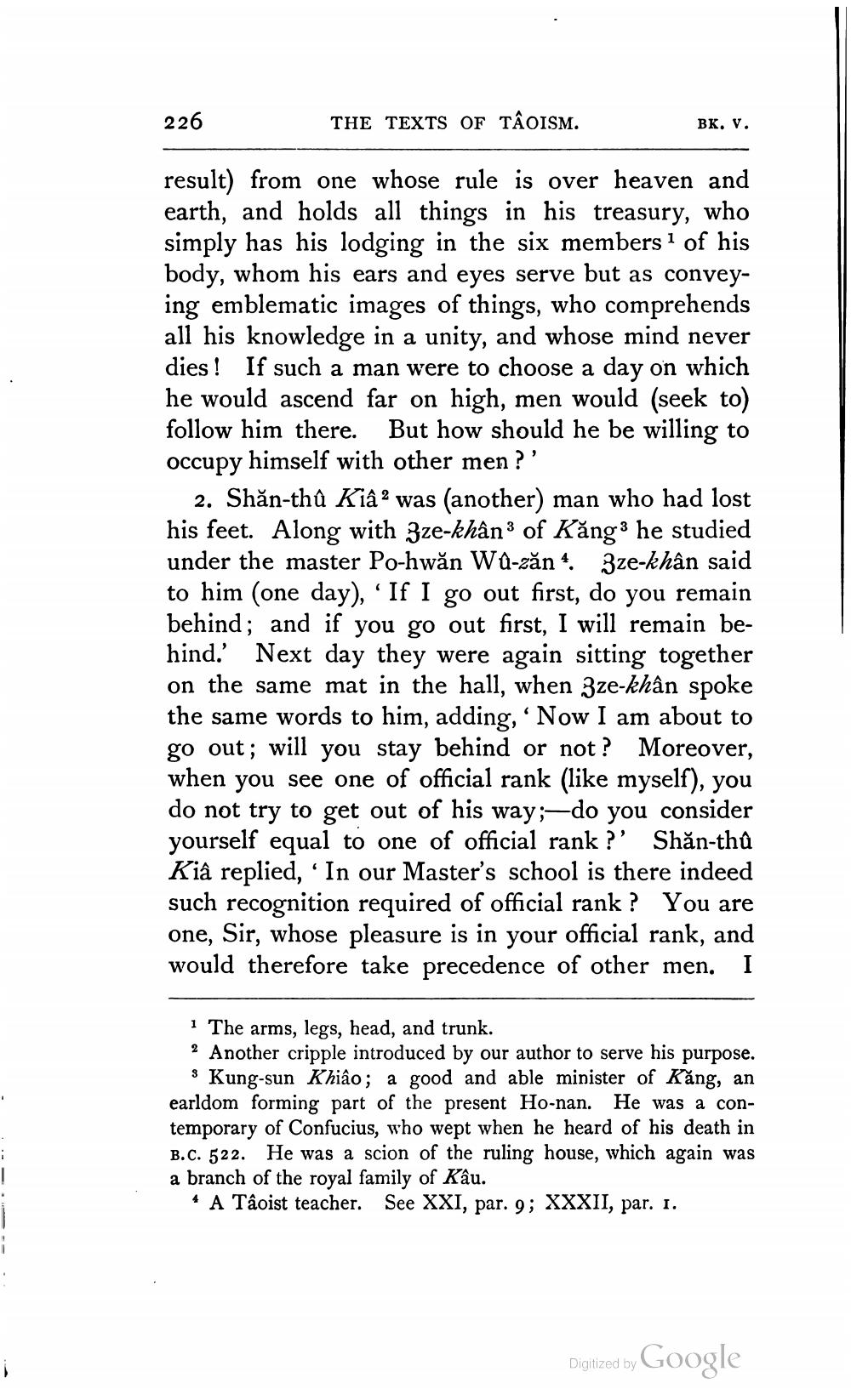________________
226
THE TEXTS OF TÂOISM.
BK. V.
result) from one whose rule is over heaven and earth, and holds all things in his treasury, who simply has his lodging in the six members of his body, whom his ears and eyes serve but as conveying emblematic images of things, who comprehends all his knowledge in a unity, and whose mind never dies! If such a man were to choose a day on which he would ascend far on high, men would (seek to) follow him there. But how should he be willing to occupy himself with other men ?'
2. Shăn-thû Kiâ 2 was (another) man who had lost his feet. Along with Zze-khân3 of Kăng: he studied under the master Po-hwăn Wa-zăn 4 Zze-khân said to him (one day), 'If I go out first, do you remain behind; and if you go out first, I will remain behind.' Next day they were again sitting together on the same mat in the hall, when Zze-khân spoke the same words to him, adding, ‘Now I am about to go out; will you stay behind or not? Moreover, when you see one of official rank (like myself), you do not try to get out of his way;—do you consider yourself equal to one of official rank?' Shăn-thû Kiâ replied, 'In our Master's school is there indeed such recognition required of official rank? You are one, Sir, whose pleasure is in your official rank, and would therefore take precedence of other men. I
1 The arms, legs, head, and trunk. ? Another cripple introduced by our author to serve his purpose.
s Kung-sun Khiâo; a good and able minister of Káng, an earldom forming part of the present Ho-nan. He was a contemporary of Confucius, who wept when he heard of his death in B.C. 522. He was a scion of the ruling house, which again was a branch of the royal family of Kâu.
A Taoist teacher. See XXI, par. 9; XXXII, par. 1.
Digitized by Google




